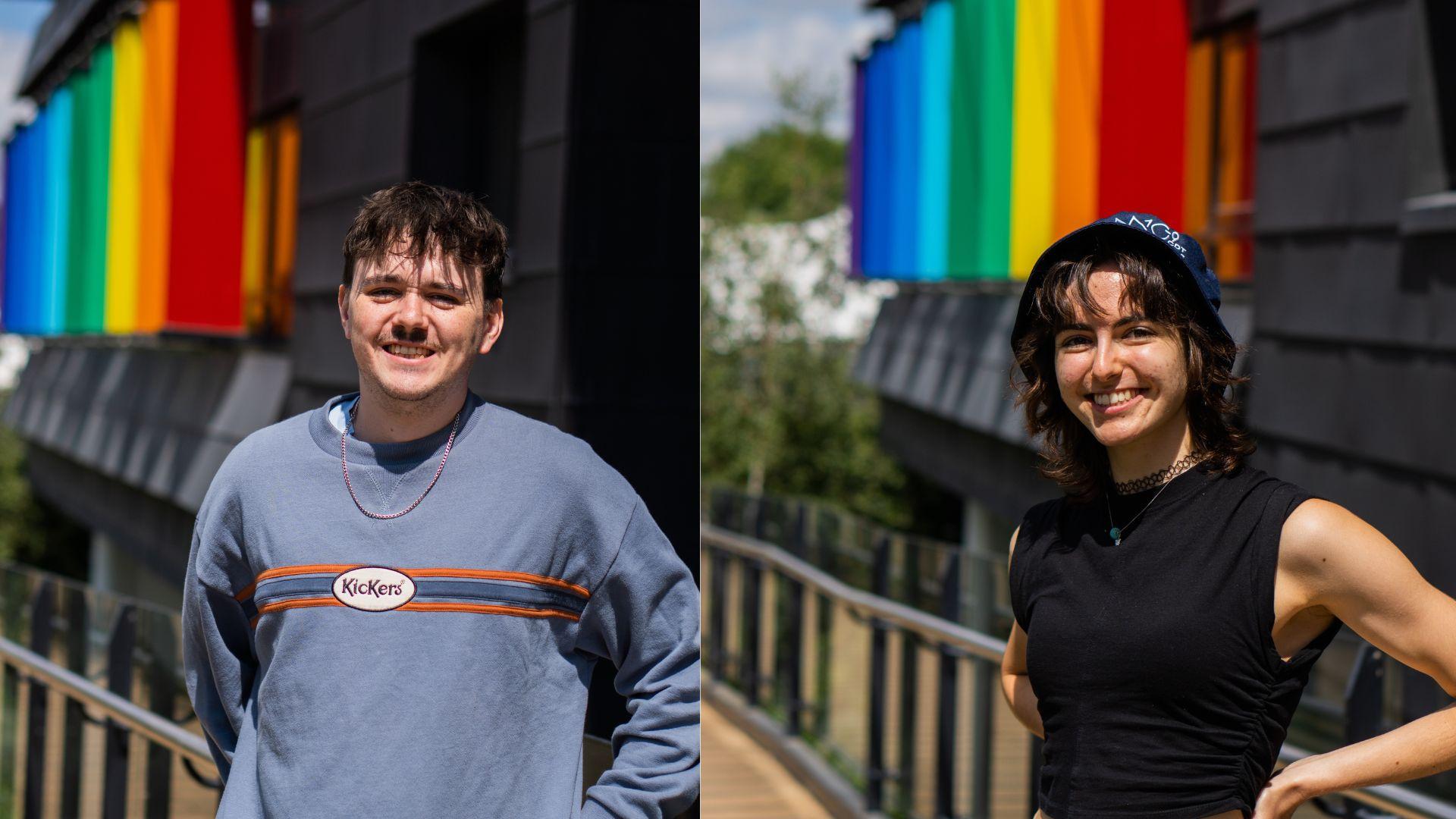
The NanoFutures Scholars undergraduate research programme encourages talented students from diverse backgrounds to get a high quality research experience during an 8-week summer research internship at the EPSRC CDT in Nanoscience and Nanotechnology (NanoDTC). Interdisciplinary in nature, the NanoDTC attracts applicants across Physical Sciences.
Physics’ NanoFutures scholars are uniquely situated to push the fundamentals underpinning the applied research some other NanoFutures Scholars such as chemists or engineers are advancing. The programme provides a uniquely interdisciplinary environment where Physicists can thrive and excel. This year we have had 2 Physics scholars who are a part of the 2022 NanoFutures Scholars programme - Thomas Brogan (Tom), who is currently a third year physics undergraduate at the University of Birmingham and Arianna Alonso Bizzi, who is a second year physics undergraduate at the Imperial College London.
We recently caught up with them to talk about their aspirations, interest in the NanoDTC and Physics, their experience with the NanoFutures Scholars programme and more.
Why Physics and what is your overall aim?
Tom: My overarching interest during my undergraduate degree so far has been tackling issues facing humanity and our collective inheritance for the future planet and so issues such as climate change, energy generation and processing as well as progressing our knowledge scientifically are all areas that I have a keen interest in.
Arianna: Combining different fields and learning from different people is what steered me towards studying Physics at undergrad. I was originally considering either engineering or computer science but I thought I would knuckle down on the theory and explore the applications later. I watched a lot of psychology and philosophy videos on YouTube and decided that maybe the ultimate combination of all these subjects was computational neuroscience and neuroengineering. The field is blooming and, when combined with AI, it starts looking insanely futuristic.
How will Physics and more specifically Nanoscience and Nanotechnology will enable you to achieve this aim?
Tom: Physics initially presented itself to me as a way to tackle issues such as energy and thus protect the climate; nanoscience gives us technology such as solar cells and batteries and has exciting avenues for carbon capture and new age materials to improve sustainability. The superconductivity I am working on here is incredibly useful in and of itself for transport and also for increased efficiency in the future.
Arianna: When I came across the NanoDTC, I was awestruck that there was a programme that spanned so many research areas – I had no idea nanoscience was so broad and all-encompassing. Speaking to the other students, I realised how vastly different everyone’s projects and methodology is - there is no one whom I can’t learn something new from. I was given a tour of the bioengineering lab, where some interns apply nanoscience to areas spanning from brain computer interfaces to targeted drug delivery and wearable bioelectronics. My own lab seems to be in another world, using incredibly powerful machines to develop new theories of superconductivity.
Why did you choose a research specific experience (the NanoFutures Scholars programme)? And how will this impact your future decisions?
Tom: I was never sure if I wanted to do a PHD, so why not try it and even if I hated it then at least I would know more about what I want and still gain invaluable experience; luckily I have had an excellent time so far.
Arianna: Overall, this has been an eye-opening experience. Although I still haven’t figured out the intricacies of the future, I know that research here is transferrable and flexible; this gives me breathing space and comfort in knowing there’s always a new topic I could dip into. Admittedly, there’s always going to be some frustration along the way. I have had to follow many tutorials to teach myself skills from CAD in Onshape to automation in LabView – those first days of darkness and apprehension can seem endless. However, there is nothing quite like the satisfaction that comes with things starting to click and the subtle realisation that you’ve just slid in a new skill into the toolbox.
Were you only working? Or there were some other opportunities for socialising and networking?
Tom: Socially the NanoDTC students have taken us punting, to BBQs and we have also been to comedy shows that people from the CDT are involved with! It's been a very enriching experience and has given us access to not only what working at Cambridge would be like but also what living here would bring, which I consider vital to learn.
Arianna: The other interns are amazing, they all really want to be here, and it’s great to be around people who are keen to discover the city. We’ve been swimming in the Cam, punting (which also almost turned into swimming!), BBQing and exploring the market and city centre. From the start, all the Nano students went on about the ‘famous’ Jack’s Gelato, so that was also an inevitable stop in our tour. As science students, we also couldn’t really ignore the Raspberry Pi shop in the Grand Arcade and, although clubbing might not be the best in Cambridge, we’ve had an immeasurable list of pub recommendations waiting to be checked out.
Image Credits: Timothy Lambden
